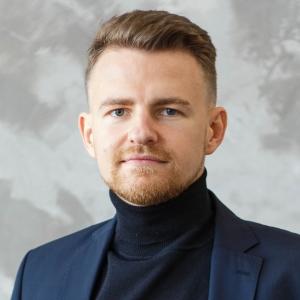Throughout history, people have always dreamed of immortality. The ongoing technological revolution in the medical sector indicates that longevity is no longer merely a fantasy. At the upcoming HumanTech Meeting, we will discuss how the latest scientific breakthroughs promise to extend human life. Join us as we hear from experts in anthropology and cutting-edge medical technologies: Professor Jennifer Huberman and Alexander Morozov.
Will humans live forever?
Advancements in technology, coupled with a strong desire for progress and increasing public demand, are providing humanity with the potential to explore new frontiers in its quest for longevity. While the prospect of extending human life is undoubtedly exciting, it also poses significant challenges. Pursuing the goal of biological immortality raises numerous moral and ethical questions that require deep thought and a responsible approach.
At the next HumanTech Meeting, we will explore the latest advancements in biotechnology, genetic engineering, and medicine that can impact the human lifespan. We are honored to host distinguished experts from diverse fields, including Professor Jennifer Huberman, a renowned anthropologist specializing in social and cultural implications of new technologies and author of "Transhumanism: From Ancestors to Avatars," and Alexander Morozov, an innovator and expert in groundbreaking medical technologies.
After the insightful lectures, we will host a panel discussion to delve further into the topic. Our panelists will address ethical dilemmas stemming from advances in cloning, the use of cutting-edge technologies in medicine, and the concept of transhumanism. Our goal is to inspire participants to reflect on the boundaries that we constantly push in our pursuit of longevity. Additionally, we hope to encourage a conversation about the rapidly evolving landscape of human consciousness and identity, as well as the responsibility that comes with shaping the future of all life on our planet.
Dr. Konrad Maj, Head of the Center for Social and Technological Innovation HumanTech at SWPS University, will open the meeting. The panel discussion will be moderated by Michał Matecki, a MedTech expert.
Lectures will be held in Polish and English and will be translated simultaneously.
The event is held under the auspices of Strefa Technologii (Technology Zone) of SWPS University
HumanTech Meetings
We live in an era of innovation, technological progress and digitalization. This current innovation drive may lead to unpredictable psychological and social outcomes. Therefore, it is crucial to establish collaborations between engineers, programmers, IT specialists and social scientists during initial phases of any new projects related to development of new technologies or services. Such collaborations may help to avoid mistakes and can support better development of new ideas.
The project is planned as a series of meetings, gathering academics and professionals from the technology sector from Poland and other countries. Each meeting will include two lectures, one delivered by a speaker from Poland and one presented by a guest from another country. The lectures will be followed by panel discussions, where panelists will represent different approaches to innovation and technology.
HumanTech Meetings is a project of SWPS University's Center for Social and Technological Innovation.
-
Alexander Morozov: Technological and Biological Enhancements Shaping the Future of Healthcare
In an era where technology is seamlessly integrated into the fabric of our existence, Alexander Morozov, a physician, scientist and futurist, explores two critical pathways that herald the beginning of an unprecedented era in healthcare and biotechnology. The first part of the talk will focus on the integration of technology into healthcare, highlighting how innovations such as virtual reality, brain-computer interfaces, and other cutting-edge technologies are revolutionizing our lives. These advances are improving cognitive abilities and offering new treatment options for psycho-neurological disorders. Alexander will discuss the merging of these technologies with our physiological selves, highlighting the latest improvements in neurointerface technology, biological prosthetics, and systems that mimic human physiology and biochemistry. He will address not only his professional endeavors but also the broader implications for healthcare. The following section will address the limits of biological enhancement, focusing on recent breakthroughs in bioengineering, gene editing, and scientific strategies for rejuvenation and combating age-related diseases. Alexander will provide insights into the future synergy between technological progress and biological advances. This talk will highlight the extraordinary potential at the intersection of technology and biology and emphasize the theme of extending the traditional boundaries of healthcare. As we approach the threshold of Life 3.1, Alexander Morozov's insights will not only enlighten but also inspire attendees to envision a future where health and technology are inextricably intertwined, offering new paradigms for wellness, longevity and human enhancement.
-
Jennifer Huberman: The Magic, Science, and Religion of Pet Cloning: An Homage to Bronisław Malinowski
How are people using technology to achieve the dream of immortality? Over the last decade, this question has inspired considerable anthropological research. Much of this research (my own included) has focused on transhumanists. Transhumanists believe we will soon be able to clone our minds and live forever in avatar form. In this talk, I will explore how cloning is understood and utilized as a means of achieving immortality. However, instead of focusing on mind cloning initiatives, I shift my attention to a more mainstream practice: the cloning of pets. Taking ViaGen Pets as a case study, I will show how cloning is conceived as a technology of immortalization that enables pet owners to maintain a lasting bond with their deceased pets. I will also argue that while making clones may begin as a technoscientific endeavor predicated upon cell cultivation technologies in a laboratory, it is only completed in and through "the magical thinking" that pet owners bring to the process. Pet cloning thus reminds us that magic, science, and religion, as Bronisław Malinowski famously proposed, can and do coexist because they each serve different needs.
Keynote Speakers

Jennifer Huberman
Professor
Is a professor of anthropology at the University of Missouri-Kansas City. Her recent research has explored the transhumanist movement in the United States and capitalism in the digital age. Currently, she is working on a new book that examines the fragility of friendship.

Alexander Morozov
Is a physician, scientist, educator, innovator and futurist. As an ardent advocate of science and technology, Alexander seeks to demystify the possibilities of the future. Currently serving as a Medical Officer, Subject Matter Expert, and Project Manager at Proven Solution, he is at the forefront of advancing high technologies such as virtual and augmented reality, robotics, and artificial intelligence. Alexander's commitment to innovation extends beyond his professional endeavors; he is dedicated to educating and inspiring others about the transformative power of new technologies and their endless possibilities for enhancing human life.